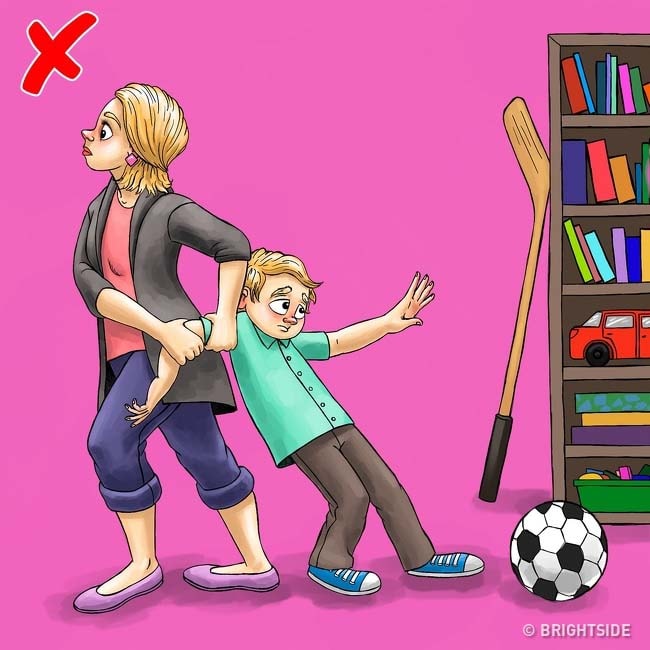9 golden rules in raising children
How can you find common ground with your child to raise them in the best way? Here are 9 tips from psychologists for you:
1. Control criticism

No one likes to hear criticism. Remember how you felt in that situation and you will understand the sadness and frustration of your child. This makes it even more difficult for your child to open up to you.
Try to control your criticism and instead adopt a gentler attitude. Using criticism combined with praise is quite effective.
2. Give your child choices

Making demands on your children is necessary, but that doesn't mean you have to be strict or imposing. Giving your children choices not only makes them feel respected, but also allows you to control their behavior.
3. Respect your child's personal space

This is a simple rule but it is often difficult for parents to follow, because most of them think that what their children are doing is useless. Have you ever thought that the Lego your child is playing with is not as important as the conversation you need to have with your child right now? Respect that space. To children, it means a lot.
4. Give your child the chance to change

Adults often think that forcing a child to follow the rules is a good way to educate because later life has many rules to follow whether they like it or not. But what about creativity and imagination? Let the child come up with his own rules. The rules can be changed to suit the child.
5. Don't abuse help

How patient can you be when your child takes a long time to do something but still makes mistakes? Do you think it is best to help them to make things go faster? In fact, if your child really needs your help, they will ask for it. At that time, you should "take action" or let them solve it themselves.
6. Give advice

Encourage your child to articulate the problem and help them make decisions. Advise them on what they need to do to improve. This will allow them to feel respected as adults, showing that you believe what they say.
7. Understand your children

When children talk about their problems, we often feel pity and want to teach them how to do things right. Phrases like “I told you so…” come naturally. Mothers often express worry, blame, judgment and evaluation – all of which can push the child further away.
Be there for your child and let them cry if they want to. Help them understand that their feelings are important and then, once they have calmed down, discuss how to resolve them.
8. Discuss hypothetical situations

Putting forward hypotheses about life around to discuss with your children is a quite effective way to help your children explore and discover the world. To achieve the highest efficiency, you should discuss with your children in an environment that is quiet enough and requires the necessary concentration. Ask questions continuously, stimulating your child's imagination and problem-solving.
One important point to remember is that when discussing imaginary situations, you don't need to bring your child back to reality with questions like, "Does this situation sound familiar to you?" If the situation is familiar to your child, he or she will think about it without your guidance.
9. Use humor to educate your children

If not parents, who will teach children that humor helps them cope and resolve difficulties with ease?
Use your acting skills and playful imagination to teach your child to do the same. Many problems are solved faster not through rules but with humor even in difficult situations.


